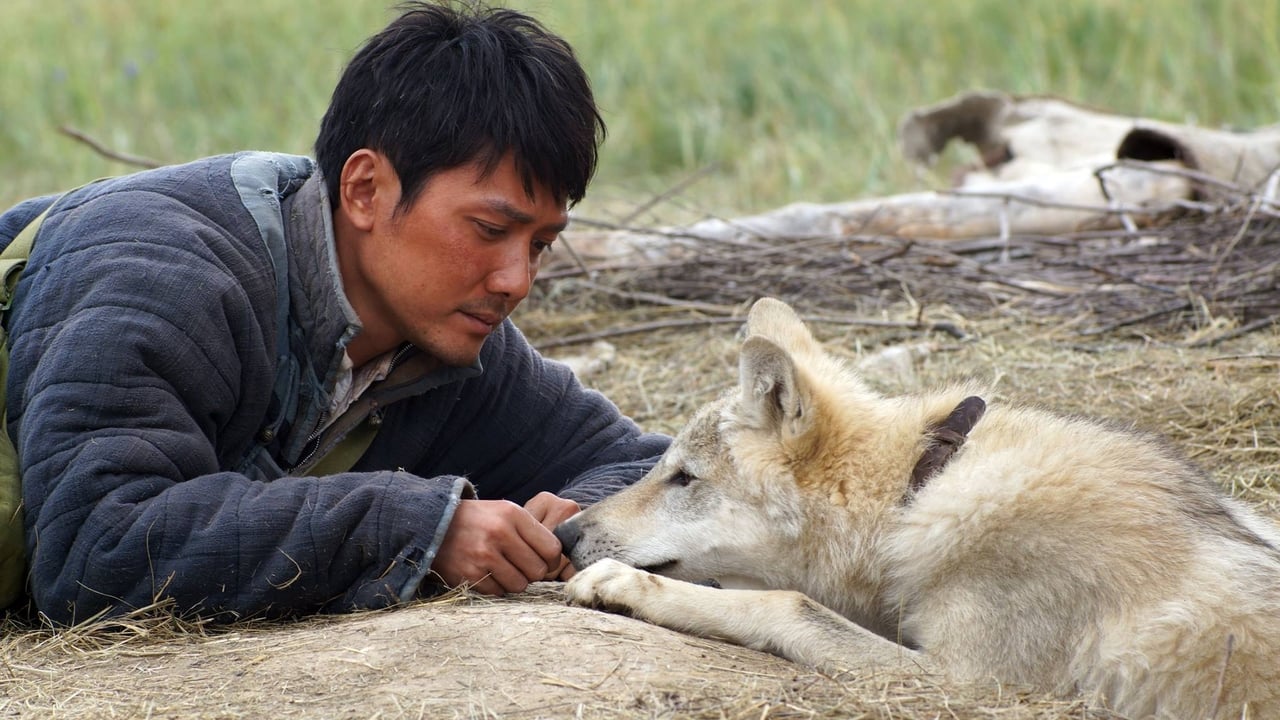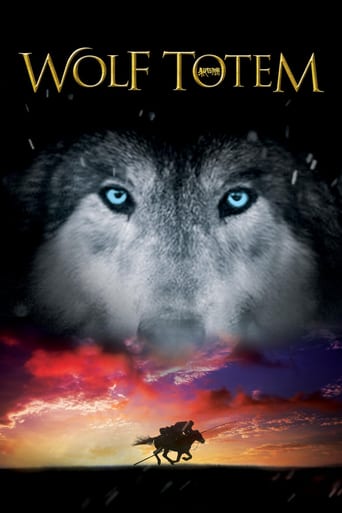

Perfect cast and a good story
... View MoreOk... Let's be honest. It cannot be the best movie but is quite enjoyable. The movie has the potential to develop a great plot for future movies
... View MoreIt really made me laugh, but for some moments I was tearing up because I could relate so much.
... View MoreA terrific literary drama and character piece that shows how the process of creating art can be seen differently by those doing it and those looking at it from the outside.
... View MoreFrench filmmaker Jean-Jacques Annaud's China-France co-production is his third enterprise tackling with human-animal equilibrium, after THE BEAR (1988) and TWO BROTHERS (2004), WOLF TOTEM is adapted from a popular semi-autobiographical Chinese novel of the same title and is shot in the majestic Inner Mongolian steppe. During China's Cultural Revolution, in 1969, two students from Beijing, Chen Zhen (Feng) and Yang Ke (Dou) are assigned to the steppe to teach local Mongolian nomads Mandarin and smooth the process of cultural integration. They are under the aegis of Bilig (Mijid), the head of the nomads, a sage mind who inculcates them the precept of the balanced co-existence between mankind and indigenous wolves. But, a pervading human force of greed and self-seeking would soon disrupt the well-maintained balance, wolves are deprived of their sustenance and during one blizzard night, driven by hunger, they attack a horde of horses and result in great casualty, including Bilig's son (although it is an accident). Retaliation is conducted under the command of an apparatchik (Yin), many wolf cubs are perished for the sake of their skins, but Chen saves one cub, secretly raises it like a pet and attachment grows. As often, one considers him or herself doing a good deed would only realise later in the stage it is a mistake, domesticating a feral wolf isn't something worth commending, and it is noteworthy that Annaud doesn't vindicate Chen's behavior by stating that the cub is bereft or in somewhat danger, Chen's behavior is solely out of his own soft spot, with no regard of the consequence for the cub itself, only after Bilig's sensible advice, Chen would right his wrongs to prepare and train the young wolf for its return to its natural territory, and one should remember, it is always a rookie mistake trying to extract a trickle of humanity out of the wild creatures, mutual connection might be able to achieved, but don't belabor yourself with any illusions of any reciprocal gestures. The stand-off between humans and wolves will reach its heroic climax after the ravenous wolf pack assails a sheep corral during one night and this time, the entire pack is almost being extirpated by bullets and unrelieved vehicle chase, witnessed powerlessly for Chen, if anything, powerless is the omnipresent feeling, wherever humans tread, there are black sheep undermining the natural grandeur and harmony, disasters are bound to ensue, a central message cannot be dissipated by the film's lugubriously concocted positive vibe in the end. It is a big relief Annaud doesn't settle for facile wishful-thinking or radical aggression in its tonality, so that the film manage to retain an organic slant which conforms with his previous similar oeuvres. The striking animal stunts orchestrated by dexterous trainer Andrew Simpson greatly hone up the set pieces, especially against its ferocious surroundings (the scenes of frozen animal corpses are manifestations of the primordial power of nature), and it goes without saying the film is a continuous landscape-porn (plus two emphatic examples of cloudscape), although sometimes its immaculateness unfittingly instigates the suspicion of an overachieved CGI-preening during the post-production. The human cast understandably takes a back seat from its awe-inspiring canine counterpart, but the dialogues sound clunky to a Chinese ear, and the character development barely exists, since when Chen and Gasma (Ragchaa), the widow and daughter-in-law of Bilig, become an item? The emphasis is so top-heavy on Chen and his wolf cub, which makes the romantic subplot comes off as abrupt and fluffy. In the main, WOLF TOTEM doesn't shortchange its forte: the spectacular vista and pulsating action sequences, and it also circumspectly bypasses the sensitive political agenda (the film was a mammoth box-office player two years ago during the golden spell of Chinese Spring Festival) and allows the story itself to stimulate reflections on a broader picture: human vs. nature, simply within ecological parameters.
... View MoreI have to admit, when I saw the cover I thought this was going to be a documentary. But it's a feature length film and it is a very well shot one. It's about nature, it's about humans and it's about wild life. Especially in the region depicted as someone else already stated well in their commentary to the film here on IMDb.This will not be everyones cup of tea, but if you like nature movies with a dramatic twist, you probably will like this too. You can't compare it to Revenant, which is something I kind of expected to find here, but fortunately that wasn't the case. The movie really brings the animals to life, framing them in a way and shooting them to make them not only characters but someone to root for and feel for too. If you are an animal friend, I don't even need to be telling you this. If not, you might not be as moved as others ...
... View MoreMoving and visually stunning autobiographical film involving Mongolians shepherds and wolves, both groups affected by encroaching settlements and bureaucratic regulations enforced by the Communist Party overseers, during the Cultural Revolution in China in the late 1960s. A Beijing university student is sent to live with nomadic shepherds and learns their ways, including their interaction which wolves, which has a spiritual significance to them. When the ecological balance is altered by human greed, there are fatal consequences for both humans and animals.While the photography captures the rugged majesty of the steppes in all its beauty and the action sequences are thrilling, this man versus nature drama portraits its characters with veracity never resorting to superhuman heroics or histrionics. Life is frail for both humans and wolves in their struggle for survival, wolves are not anthropomorphized, the Mongolian lifestyle is not romanticized, there are no easy solutions.Perfectly acted with flawless cinematography, this a must-see films for nature lovers and those who are concerned about the environment. The rest of the viewers should also be rewarded by this poignant and compelling real life story.
... View MoreThis movie was essentially on ecology, environmental protection and on the dignity of nature and all creation - here exemplified by the Mongolian wolf. The tradition and culture of Mongolian tribes unfolded before the eyes of the chief protagonist, a city boy from Beijing sent to these realms by waves of the Cultural Revolution. The audience followed his adventures and drank in the beauty of the awe-inspiring grasslands, learnt about the (sometimes cruel) facts of life and were drawn into the joys and woes of the Mongolian herding tribe. Fascinated by the wolves, the Han student rashly tried raising a wolf cub. His actions led to unimaginable consequences and irreparable damage as he found himself accomplice to ruining the Mongolian people and the grasslands he grew to love. In the end with a heavy heart we witnessed the darkening destiny of the "great life" of the grassland, ever intertwined with that of the "little lives" of all life forms dependent on it. The movie tried to portray that there was a faint speck of light and hope with the return of the captive wolf, though it was not really comforting. Fabulous acting on the part of the wolves; with discernible laudable effort and bonding between trainers and the animals. Worth watching despite the unflattering take on humanity and greed, if only for the noble creatures of its namesake.
... View More